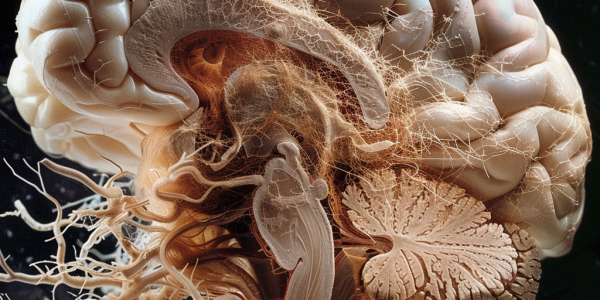AI Revolutionizing Cancer Research: A Guide for Non-Computational Researchers
Discover how artificial intelligence is transforming cancer research and empowering non-computational researchers to unlock hidden insights in data. Learn how AI tools can streamline workflows, uncover scientific discoveries, and enhance research productivity in this comprehensive guide published in Nature Reviews Cancer.
New Biomarker miR-519a-3p Discovered for Asymptomatic Stages of Alzheimer’s Disease
Researchers have discovered a new biomarker, miR-519a-3p, that could be used for early diagnosis and treatment of Alzheimer’s disease in its asymptomatic stages. This microRNA is associated with the cellular prion protein and could enhance diagnostic accuracy in the early stages of the disease. Join our webinar to learn more about the role of organoids in advancing treatment for neurological disorders.
Man Beats Stage 4 Brain Cancer Twice: A Story of Resilience and Hope
Read about Brian Anderson’s incredible journey of beating stage 4 brain cancer twice, defying the odds and inspiring hope in Winston-Salem, North Carolina. Despite the challenges he faced, Anderson’s resilience and determination serve as a beacon of hope for all facing adversity.
Sex-related Differences in Human White Matter Microstructure Revealed by Diffusion MRI
Discover how a recent study utilizing diffusion MRI as an in vivo microscope uncovers significant sex-related differences in human white matter microstructure. With high sex classification performance across all diffusion metrics, the study highlights the importance of understanding cellular-level microstructural variances between men and women for insights into brain health and disease.
Optimal Balance of Benefit Versus Risk for Tafenoquine in Plasmodium Vivax Malaria Treatment
A recent study published in the Malaria Journal has highlighted the effectiveness of a single 300 mg dose of tafenoquine in combination with chloroquine for the radical cure of Plasmodium vivax malaria. This new treatment approach is expected to improve patient adherence and overall treatment outcomes, offering a favorable benefit-risk profile for the radical cure of vivax malaria.
High Salt Consumption and Hypertension Leading to 10,000 Daily Deaths in WHO European Region
Cardiovascular diseases are claiming the lives of 10,000 people every day in the WHO European Region, with men being more frequently affected than women. A recent report from WHO/Europe has highlighted the alarming levels of salt consumption and uncontrolled high blood pressure contributing to this health crisis. Implementing targeted policies to reduce salt intake by 25% could potentially save around 900,000 lives from CVDs by 2030.
Climate Change’s Impact on Brain Health
Climate change is impacting brain health, worsening conditions like stroke, migraines, Alzheimer’s, and more. Rising temperatures and humidity levels can disrupt brain function and exacerbate neurological diseases. Medications used to treat these conditions can further hinder the body’s ability to cope with extreme temperatures. As global temperatures rise, the incidence of neurological diseases is expected to increase, making it crucial to address the impact of climate change on brain health to safeguard public health.
Groundbreaking 3D Printed Pills with Timed Drug Release Developed by University of Nottingham Researchers
Researchers from the University of Nottingham have developed 3D printed pills using Multi-Material InkJet 3D Printing, allowing for personalized medication with timed drug release capabilities. This innovative method controls drug release rate within the tablet, simplifying complex medication regimens into a single dose. The technology has the potential to revolutionize drug delivery and advance personalized medicine, although challenges like the need for additional formulations remain. With the ability to print 56 pills in a single batch, this advancement showcases the potential for mass production of personalized medicines for diseases requiring precise timing and dosage accuracy.
Systemic Antibiotic Exposure in Infancy Linked to Higher Risk of Atopic Dermatitis
A recent study published in the Journal of Allergy and Clinical Immunology reveals a dose-response relationship between systemic antibiotic exposure in the first year of life and the risk of atopic dermatitis (AD). Led by researchers from the University of British Columbia, the study found that early-life antibiotic use is associated with an increased risk of AD, with higher odds ratios for multiple courses. The alterations in the gut microbiome fully mediate the impact of antibiotics on AD development, suggesting potential markers for predicting and preventing the condition.
U.S. Braces for Return of Monkeypox Amid Pride Events
With Pride events approaching, U.S. officials are preparing for a potential resurgence of mpox, a disease that impacted gay and bisexual men in 2022. The CDC warns of a deadlier version in the Democratic Republic of Congo, emphasizing the importance of vaccination for at-risk individuals. Global disease surveillance is crucial to prevent the spread of infectious diseases like mpox.










